Safe & secure Ajna Protocol wallet
Take control of your Ajna Protocol assets with complete confidence in the Trezor ecosystem.
- Secured by your hardware wallet
- Use with compatible hot wallets
- Trusted by over 2 million customers
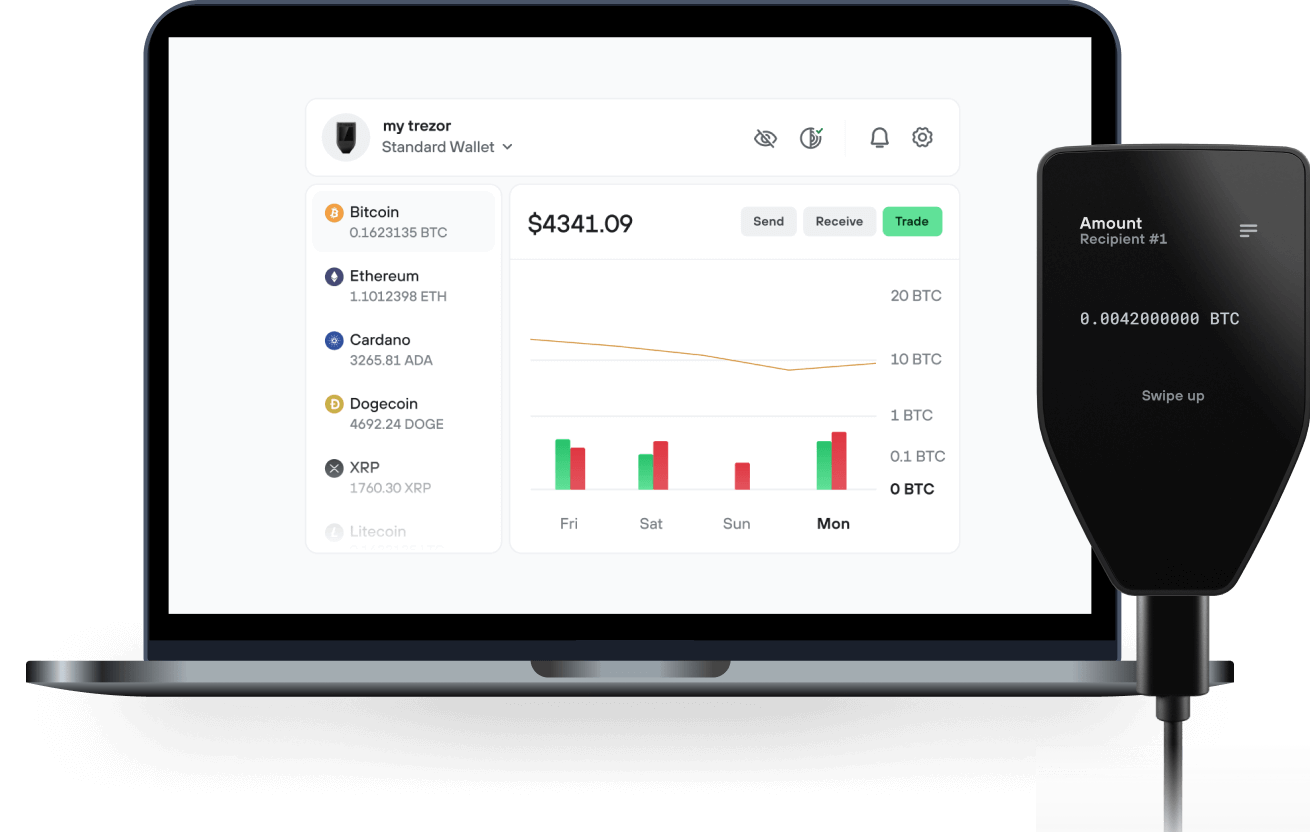
Send & receive your Ajna Protocol with the Trezor Suite app

Send & receive

Swap
Trezor hardware wallets that support Ajna Protocol
Sync your Trezor with wallet apps
Manage your Ajna Protocol with your Trezor hardware wallet synced with several wallet apps.
Trezor Suite
MetaMask
Rabby
Supported Ajna Protocol Networks
- Base
- Ethereum
Why a hardware wallet?
Go offline with Trezor
- You own 100% of your coins
- Your wallet is 100% safe offline
- Your data is 100% anonymous
- Your coins aren’t tied to any company
Online exchanges
- If an exchange fails, you lose your coins
- Exchanges are targets for hackers
- Your personal data may be exposed
- You don’t truly own your coins
How to AJNA on Trezor
Connect your Trezor
Install Trezor Suite
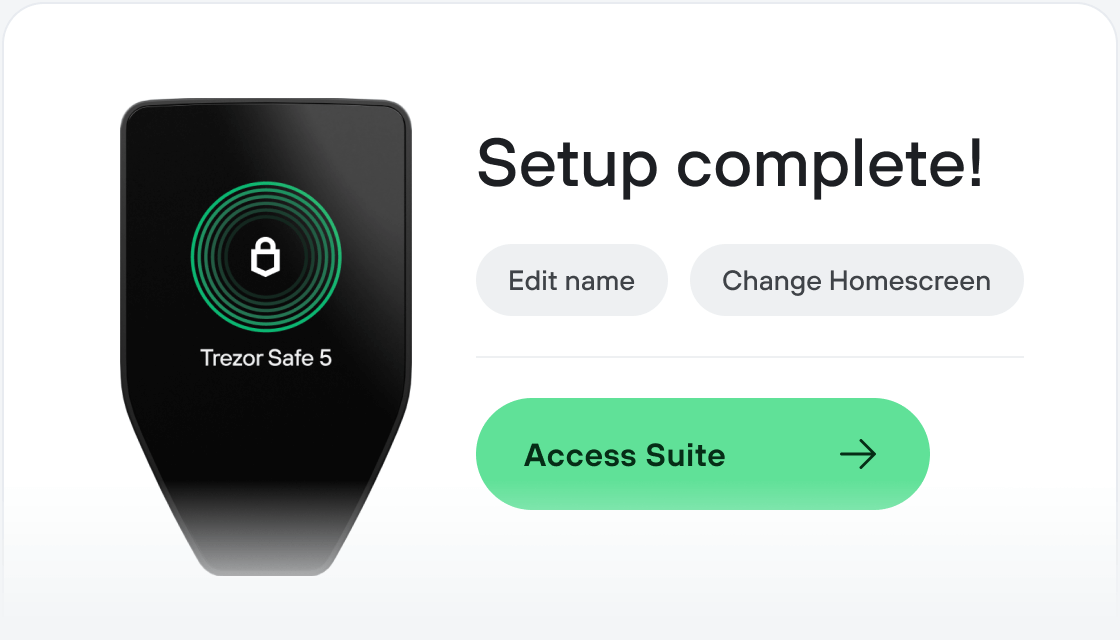
Transfer your AJNA
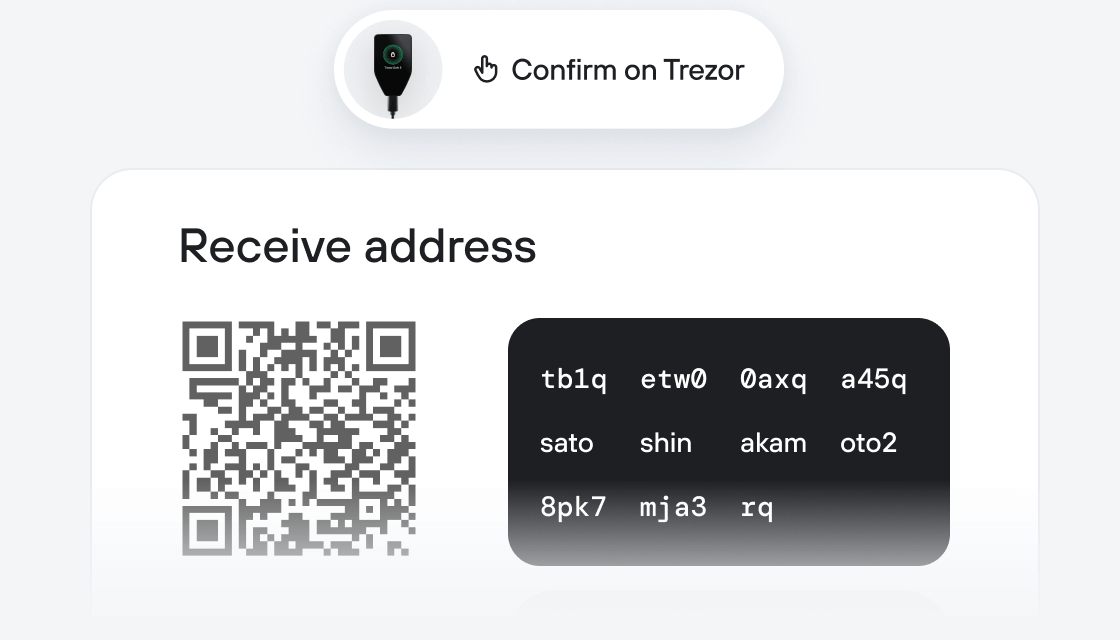
Make the most of your AJNA
Trezor keeps your AJNA secure
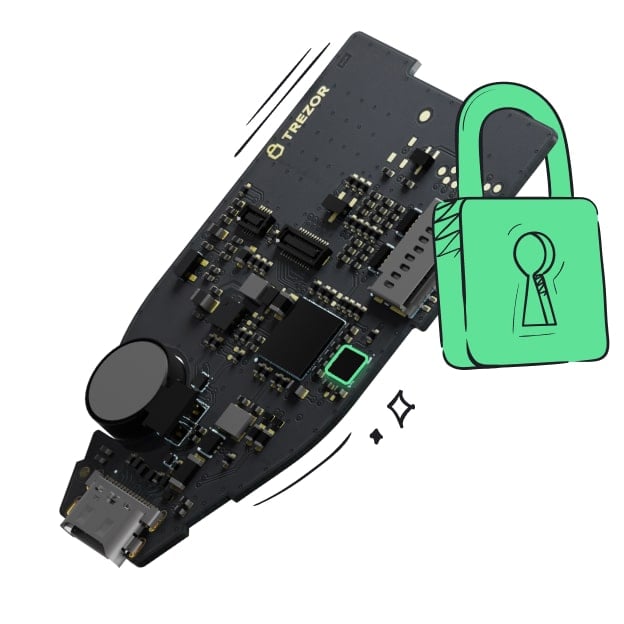 Protected by Secure Element
Protected by Secure ElementThe best defense against both online and offline threats
 Your tokens, your control
Your tokens, your controlAbsolute control of every transaction with on-device confirmation
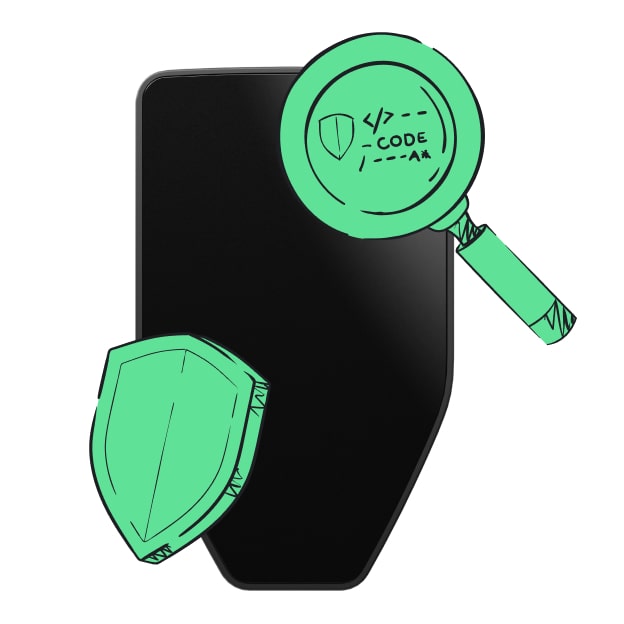 Security starts with open-source
Security starts with open-sourceTransparent wallet design makes your Trezor better and safer
 Clear & simple wallet backup
Clear & simple wallet backupRecover access to your digital assets with a new backup standard
 Confidence from day one
Confidence from day onePackaging & device security seals protect your Trezor’s integrity
The Ajna protocol facilitates peer-to-pool secured loans without governance and without external price feeds. Current lending and borrowing protocols which utilize smart contracts require active governance (e.g. to set rates and to update contracts) and/or rely on external price feeds (such as oracles like Chainlink). Because the pricing of collateral and parameterization of loans are left to subjective decision making through governance rather than market forces, these protocols carry both solvency and liquidity risk. Governance and maintenance overhead create barriers to entry in the market for lending and borrowing of on-chain assets. Ajna solves these problems with its unique design, which is defined by the following features:
Permissionless pool creation: Much like the popular DeFi primitive, the “automated market maker,” AMM, Ajna pools exist in unique pairs: quote token, provided by lenders and collateral token, provided by borrowers. Pools allow lenders to assess borrower demand for their quote token and for borrowers to assess lender demand for loans backed by their collateral. Pools are created permissionlessly, meaning anyone can create a pool to borrow arbitrary fungible tokens using arbitrary fungible or non-fungible tokens as collateral. Therefore, no governance process is needed to whitelist approved tokens.
Price specified lending: Ajna replaces external price feeds (oracles) by allowing lenders to input the price at which they’re willing to lend. This price is the amount of quote token (i.e. the token they are lending) they are willing to lend per unit of collateral pledged by the borrower. For example, if a lender deposits at price 100, they are willing to lend 100 units of quote token per one unit of collateral. Ajna pools separate prices into predefined buckets to reduce the complexity of the protocol, prices are therefore hereon referred to as “buckets”. Borrowers are then able to borrow from the aggregated liquidity of these various buckets.